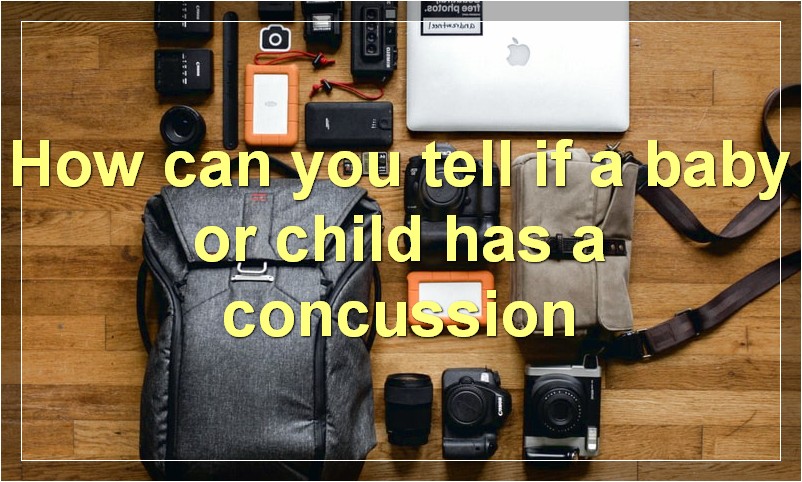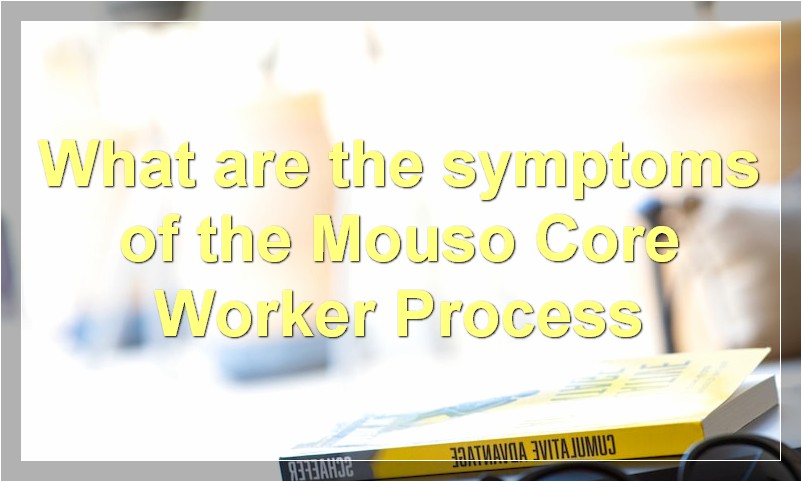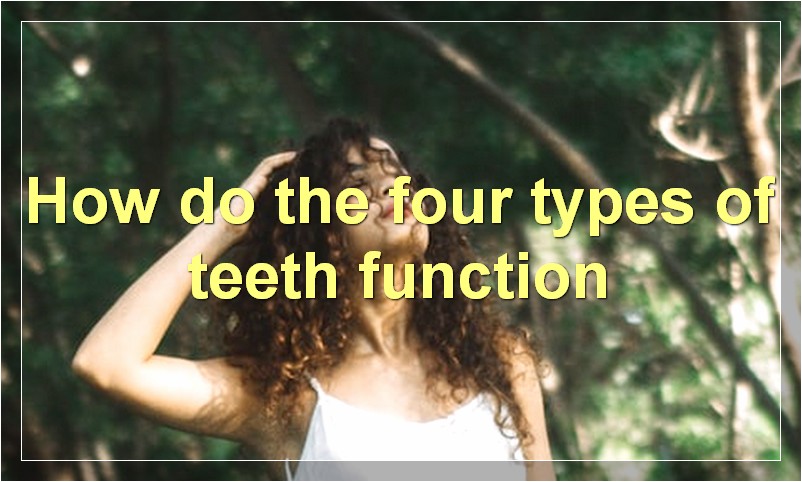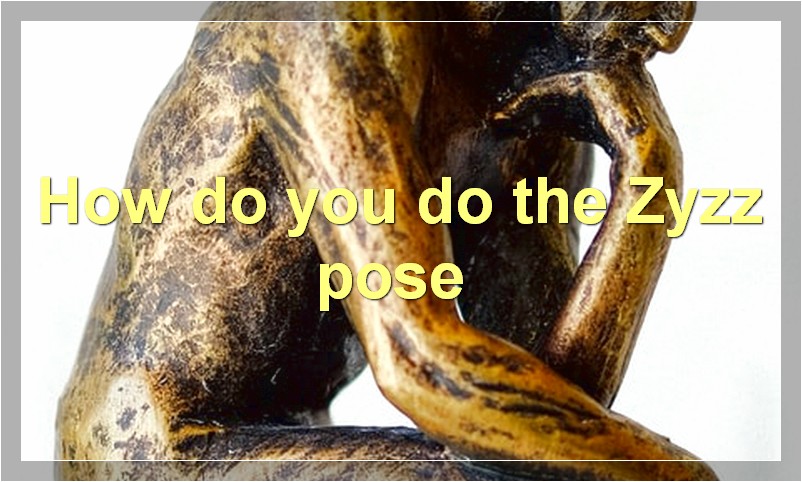When you think of concussions, you might picture a high school football player getting tackled during a game. However, concussions can happen to anyone at any age – even babies. Because concussions are common and can have serious consequences, it’s important to know how to spot them in babies and children.
How can you tell if a baby or child has a concussion?
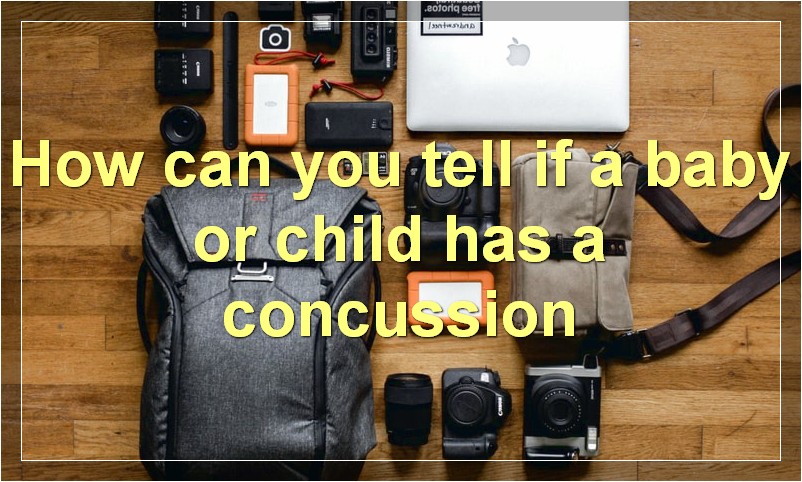
A concussion is a type of brain injury that can occur after a fall, blow to the head, or other head injury. A concussion can cause serious symptoms, including headaches, nausea, vomiting, and dizziness. A concussion can also cause problems with memory, balance, and coordination. If you think your child has a concussion, it is important to see a doctor right away.
There are several signs that may indicate that a child has a concussion. These include:
– headache
– nausea or vomiting
– dizziness or balance problems
– confusion or memory problems
– feeling tired or having no energy
– changes in mood or behavior
If your child has any of these symptoms, it is important to see a doctor right away. A doctor can determine if your child has a concussion and provide the appropriate treatment.
How do concussions occur in babies or children?
A concussion is a type of traumatic brain injury (TBI) caused by a blow to the head or body that causes the head and brain to move rapidly back and forth. This sudden movement can damage the brain cells and cause chemical changes in the brain. Concussions can occur in people of any age, but are most common in children and young adults.
Most concussions occur during falls, motor vehicle accidents, or sports-related activities. However, concussions can also occur from non-accidental head injuries, such as shaken baby syndrome.
Concussions can vary in severity, from mild to severe. Mild concussions may only cause temporary symptoms, while more severe concussions can lead to long-term problems, such as memory loss, difficulty concentrating, and depression.
If you suspect that your child has a concussion, it is important to seek medical attention immediately. The doctor will likely perform a physical examination and order some imaging tests, such as a CT scan or MRI, to assess the extent of the injury. Treatment for a concussion typically includes rest and limiting activities that could aggravate the symptoms. In some cases, medication may be prescribed to help with headaches or other symptoms.
What are the consequences of a concussion in babies or children?
A concussion is a type of traumatic brain injury that can occur when the head hits an object or when an object penetrates the skull and causes the brain to bounce around or twist inside the head. Concussions can occur at any age, but are most common in children and adolescents. A concussion can cause a wide range of symptoms, including headache, nausea, dizziness, problems with balance, lightheadedness, fatigue, irritability, blurred vision, ringing in the ears, sleep disturbances, and changes in mood or behavior. While most concussions are mild and resolve within a few days or weeks, some can lead to more serious problems, such as bleeding in the brain, prolonged coma, or even death.
There is no one definitive answer to the question of what are the consequences of a concussion in babies or children. The severity of the symptoms and the long-term effects of a concussion will vary depending on the individual child and the circumstances of the injury. In general, however, it is thought that infants and young children may be more susceptible to developing lasting problems after a concussion due to their still-developing brains. Additionally, children who have had multiple concussions or who suffer from chronic medical conditions such as diabetes or sickle cell disease may also be at increased risk for more severe symptoms and long-term effects.
If your child has suffered a concussion, it is important to seek medical attention right away. Your child’s doctor will likely perform a physical examination as well as neurological testing to assess for any damage to the brain. In some cases, imaging tests such as CT scans or MRIs may also be ordered. Once the extent of the injury has been determined, your child’s doctor will develop a treatment plan which may include rest, over-the-counter pain medication, and physical therapy. In more severe cases, hospitalization may be necessary. It is important to follow your child’s doctor’s instructions and to watch for any worsening of symptoms which could indicate a more serious problem.
What is the treatment for a concussion in babies or children?
A concussion is a type of traumatic brain injury that can occur when the head experiences a sudden, violent jolt. Concussions can range from mild to severe, and can cause a variety of symptoms, including headache, nausea, vomiting, dizziness, blurred vision, and sleepiness.
There is no one-size-fits-all treatment for concussions, as the best course of action will vary depending on the individual case. However, some general tips for managing a concussion include rest, ice, and pain relief. It is also important to avoid activities that could exacerbate symptoms, such as screen time, reading, or driving.
If you suspect your child has suffered a concussion, it is important to seek medical attention as soon as possible. A doctor will be able to assess the severity of the injury and provide specific instructions for care. In most cases, concussions will resolve on their own with time and proper care. However, in some cases, more serious complications can develop, so it is always best to err on the side of caution.
How can you prevent a concussion in babies or children?
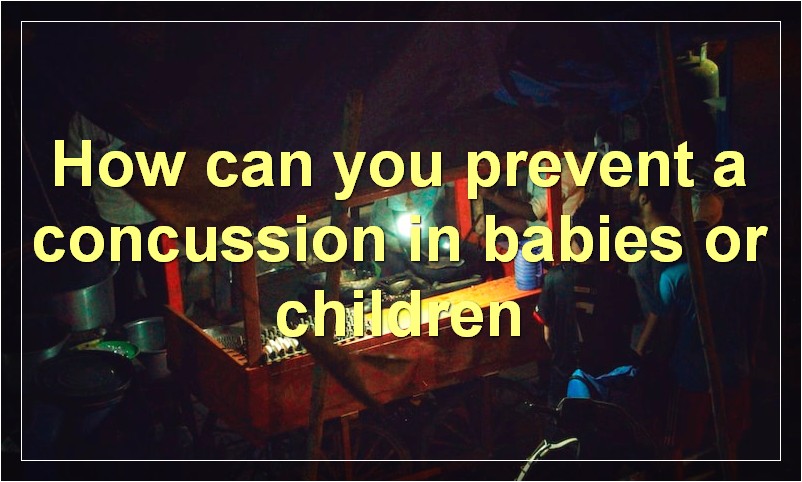
Most people think of concussions as being caused by a blow to the head, but they can also be caused by a blow to the body that forces the head and brain to move rapidly back and forth. This type of injury usually occurs during contact sports, such as football or hockey, but can also happen if a child falls off a swing or slide, or is in a car accident.
There is no sure way to prevent all concussions, but there are some things you can do to reduce the risk. For example, if your child plays a contact sport, make sure they wear the proper safety equipment, such as a helmet, mouthguard, and padding. And teach them how to play safely, so they know how to avoid collisions.
If you’re worried about your child sustaining a concussion, talk to their doctor. They can give you more tips on how to keep your child safe.
What are the long-term effects of a concussion in babies or children?
A concussion is a type of brain injury that most often occurs after a blow to the head. Concussions can also occur from a fall or other type of accident. A concussion can cause a brief loss of consciousness and/or confusion. More serious concussions can cause lingering symptoms, including headaches, dizziness, nausea, sleep problems and mood changes.
Most people who suffer a concussion will recover within a few days or weeks with rest and limited activity. However, some people may experience long-term effects from a concussion, especially if they have had multiple concussions.
Babies and children are more vulnerable to concussions because their brains are still developing. They may also be more likely to suffer from long-term effects from a concussion. If your child has suffered a concussion, it is important to watch for any changes in their behavior or development.
If you think your child may have a concussion, it is important to see a doctor right away. The sooner a concussion is diagnosed, the sooner treatment can begin.
How does a concussion differ from a mild brain injury?
A concussion is a type of traumatic brain injury, or TBI, caused by a blow to the head or body that causes the head and brain to move rapidly back and forth. This sudden movement can cause the brain to bounce around or twist in the skull, stretching and damaging the brain cells. Concussions are considered a mild form of TBI because they are not usually life-threatening.
Mild brain injuries, on the other hand, can be much more serious. A mild brain injury is any type of damage to the brain that results in a loss of consciousness for less than 24 hours. These injuries can cause long-term problems, including cognitive impairment, personality changes, and difficulty with everyday activities.
Can concussions in babies or children lead to death?
Yes, concussions in babies or children can lead to death. This is because the brain is very soft and fragile at this age, and a strong blow to the head can cause it to bleed or swell. This can lead to pressure on the brain, which can then lead to death.
What research is being done on concussions in babies or children?
A concussion is a type of brain injury that can occur when the head hits an object or receives a blow. Concussions can range from mild to severe, and can cause a variety of symptoms, including headaches, dizziness, nausea, confusion, and difficulty concentrating or remembering. While concussions are most commonly associated with athletes, they can occur in anyone at any age.
Concussions in babies and children are particularly concerning because their brains are still developing. A concussion can disrupt the normal development of the brain and lead to long-term problems. For this reason, it is important to understand what causes concussions in young children and what research is being done to prevent them.
There are a number of potential causes of concussions in young children. One common cause is falls. Children are more likely than adults to fall, and their brains are more susceptible to injury from falls. Other causes of concussions in young children include car accidents, being hit by a playground equipment, and shaken baby syndrome.
There is currently no definitive way to diagnose a concussion in a young child. Symptoms of concussions can vary greatly from one child to another and may not appear immediately after the injury occurs. For this reason, it is important to watch for signs of a concussion in the days and weeks following an injury. Signs of a concussion may include changes in sleeping patterns, irritability, appetite changes, fatigue, headaches, dizziness, and difficulty concentrating or remembering. If you suspect your child has a concussion, it is important to see a doctor as soon as possible for an evaluation.
There is no specific treatment for concussions in young children. Most children will recover from a concussion within a few weeks with rest and plenty of fluids. In some cases, however, symptoms may persist for longer periods of time. If your child is experiencing persistent symptoms, it is important to follow up with their doctor for further evaluation and treatment.
There is currently no way to prevent concussions in young children. However, there are some steps you can take to reduce the risk of your child sustaining a concussion. These steps include:
* Ensuring your child wears appropriate safety gear when participating in activities such as sports;
* Supervising your child closely when they are playing;
* Teaching your child how to fall safely; and
* Avoiding activities that could put your child at risk for head injuries such as shaking baby syndrome.
While there is no way to completely prevent concussions in young children, understanding the causes and taking steps to reduce the risk can help ensure your child stays safe and healthy.

